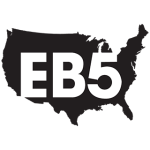Despite social and political upheaval, Turkey’s economy has continued to grow rapidly over the last few years and is still seen as a strong force in the region. It now boasts the eighteenth highest GDP in the world, but rising debt makes this continued pace of growth uncertain. Turkey also faces increasing inflation that hit a 15-year high of 25.2% in October 2018. The Turkish lira is now trading at a rate of 5.5 lira per U.S. dollar, providing incentive for potential Turkish EB-5 investors to leave the country.
Wealth and Economy
In the last few years, Turkey has seen the highest emigration rate of wealthy citizens of any major economy, with a full 12% of its millionaires leaving the country in 2017. This mass departure can be attributed to high inflation, intensifying security and economic issues, and President Recep Tayyip Erdogan’s clampdown on his political opponents.
Political Landscape
Turkey was founded as a secular republic in the early 1900s and has made strides towards becoming a full democracy. However, President Erdogan has been accused of attempting to establish an autocracy, and he has gained notoriety for limiting dissent and free press. A failed coup in 2016 resulted in the arrest of thousands of soldiers and professionals seen as threatening to Erdogan’s government, and hundreds of journalists have been detained for criticizing his administration. Nevertheless, a 2017 referendum switched Turkey’s government to a presidential system, giving Erdogan significantly more power. In addition, Turkey’s attempts to join the EUhave been held back by its dubious human rights record, including the oppression of Kurds who make up a fifth of its population. In these circumstances, the fleeing of Turkey’s elite is quite understandable.
Crime and Safety
Turkey’s crime rate over the last two decades has increased significantly, even when taking into account its growth in population. Its number of prisoners almost quadrupled, with a 400% rise in robberies, homicides and drug-related offenses. Armed violence also increased by 61% from 2015 to 2017, leading affluent residents to search for more secure places to live and raise their families.
Environmental Conditions
Turkey’s rapid industrialization has led to unsafe levels of air pollution for at least 97% of Turkish city-dwellers, with the country quickly becoming one of the world’s largest producers of greenhouse gases. Coupled with water pollution and overfishing, Turkey’s abundant biodiversity is in jeopardy.However, the Turkish government has already begun plans to adopt more sustainable energy sources, including wind, solar, and hydropower.
Educational Quality
Primary school is free for all Turkish citizens, and 12 years of education are required for both boys and girls. However, as in Vietnam, Turkish education tends to emphasize memorization over critical thinking. Furthermore, curricula and educational materials are determined by the government’s education ministry11, and in 2017 the decision was made to remove evolution from all high school biology textbooks. Many critics accuse the Turkish government of trying to influence Turkey’s youth with religious ideology, which was compounded by the firing of 33,000 teachers after the failed coup in 2016. Therefore, many wealthy Turkish parents are looking elsewhere for more secular educational opportunities for their children.
EB-5 Project Selection Preferences
Turkish EB-5 investors are wary of their country’s high inflation rate and the current political crisis. With the clock ticking, wealthy Turks are most concerned with getting their money out of the country and into the U.S.as soon as possible. Asa result, EB-5 investors in Turkey tend to favor EB-5 projects that can move quickly, with returns on investments being a lower priority.
Capital Flow and Other Challenges with the EB-5 Process
Foreign exchange brokers can be found in most Turkish cities and can help facilitate money transfers into and out of the country. However, Turkish EB-5 investors should be prepared to answer questions about the source and destination of their funds, as the Turkish government is trying to crack down on financing to terrorist organizations. EB-5 investors in Turkey can transfer up to $50,000 before their bank has to notify the Turkish Central Bank of the exchange
Marketing Channels for Investors
The Turkish EB-5 market tends to be scattered, with only a handful of established immigration brokers. The majority of Turkish investors are connected through networks of small companies, such as chartered accountants, travel agencies, real estate brokers, and wealth managers. In addition, many Turkish EB-5 investors are sourced directly by regional centers and project sponsors through in-person seminars in Turkey. These groups also target Turkish investors who are already in the U.S. on alternative visas.
